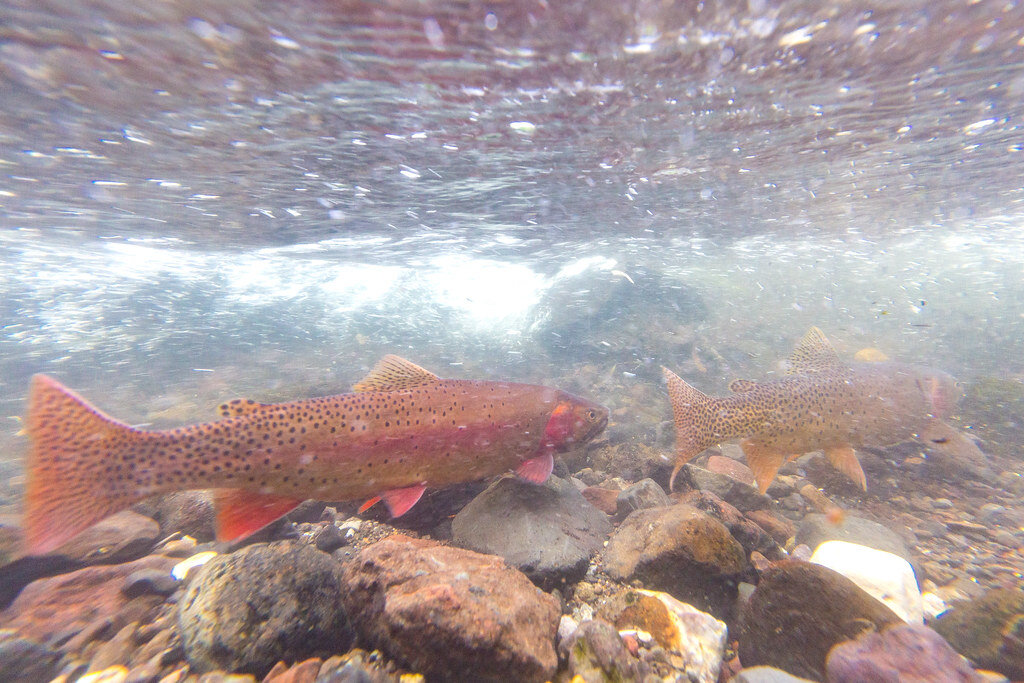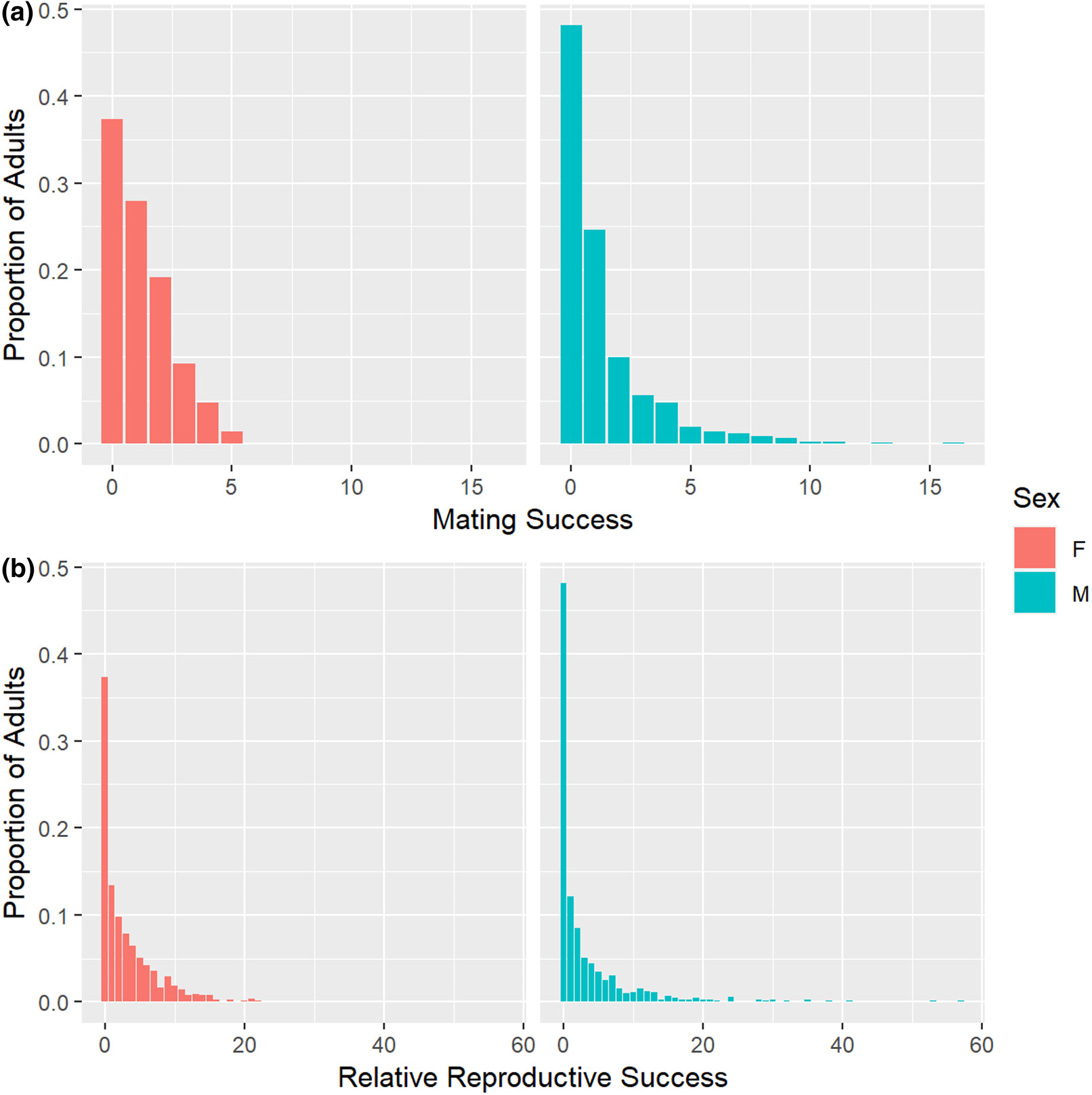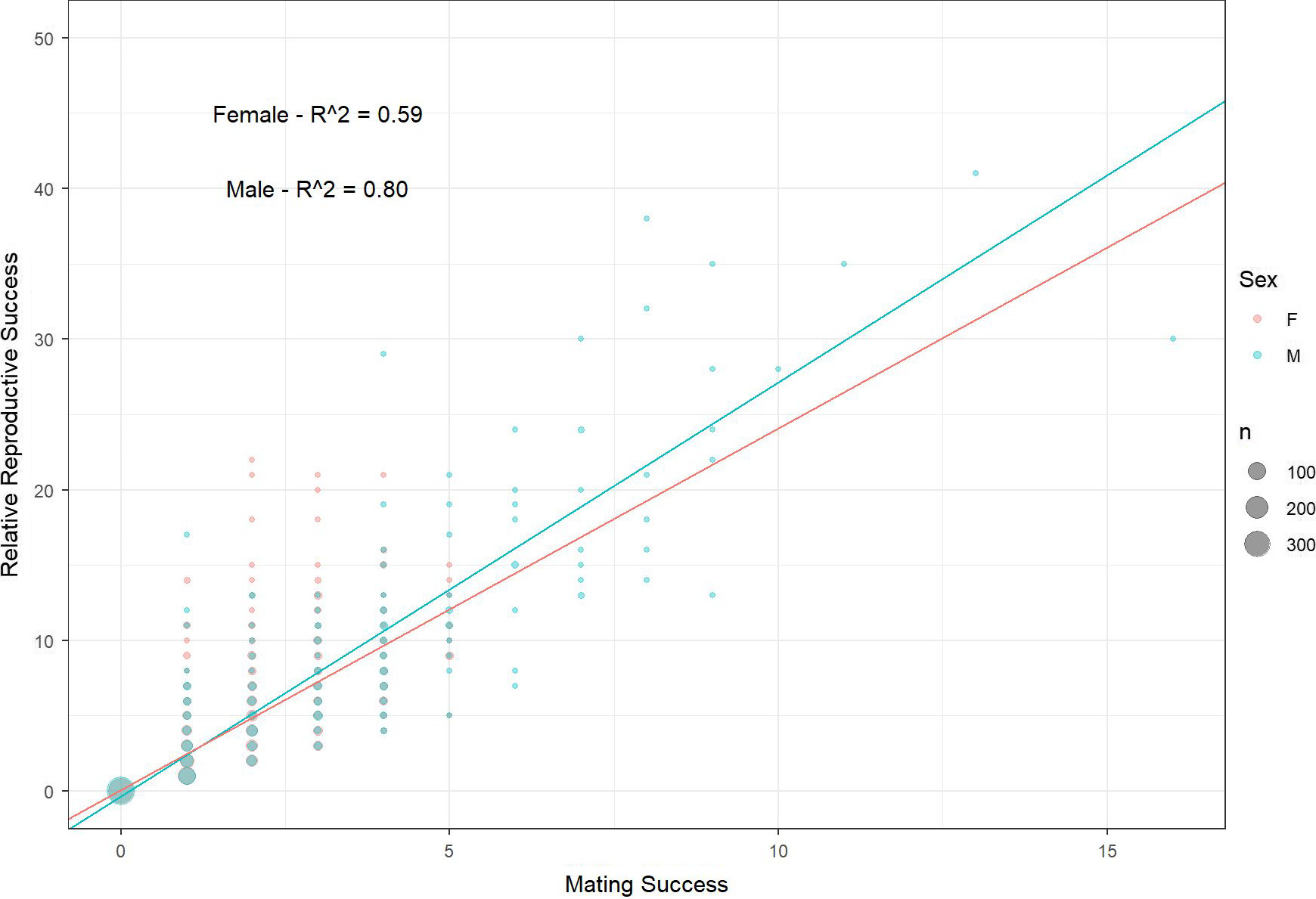Mating systems and predictors of relative reproductive success in Cutthroat Trout
Hargrove, J. S., McCane, J., Roth, C. J., High, B., & Campbell, M. R. (2021). Mating systems and predictors of relative reproductive success in a Cutthroat Trout subspecies of conservation concern. Ecology and Evolution, 00, 1– 15. https://doi.org/10.1002/ece3.7914
Mating systems and patterns of reproductive success in fishes play an important role in ecology and evolution. While information on the reproductive ecology of many anadromous salmonids (Oncorhynchus spp.) is well detailed, there is less information for nonanadromous species including the Yellowstone Cutthroat Trout (O. clarkii bouvieri), a subspecies of recreational angling importance and conservation concern. Using data from a parentage-based tagging study, we described the genetic mating system of a migratory population of Yellowstone Cutthroat Trout, tested for evidence of sexual selection, and identified predictors of mating and reproductive success. The standardized variance in mating success (i.e., opportunity for sexual selection) was significantly greater for males relative to females, and while the relationship between mating success and reproductive success (i.e., Bateman gradient) was significantly positive for both sexes, a greater proportion of reproductive success was explained by mating success for males (r2 = 0.80) than females (r2 = 0.59). Overall, the population displayed a polygynandrous mating system, whereby both sexes experienced variation in mating success due to multiple mating, and sexual selection was variable across sexes. Tests for evidence of sexual selection indicated the interaction between mating success and total length best-predicted relative reproductive success. We failed to detect a signal of inbreeding avoidance among breeding adults, but the group of parents that produced progeny were on average slightly less related than adults that did not produce progeny. Lastly, we estimated the effective number of breeders (Nb) and effective population size (Ne) and identified while Nb was lower than Ne, both are sufficiently high to suggest Yellowstone Cutthroat Trout in Burns Creek represent a genetically stable and diverse population.



